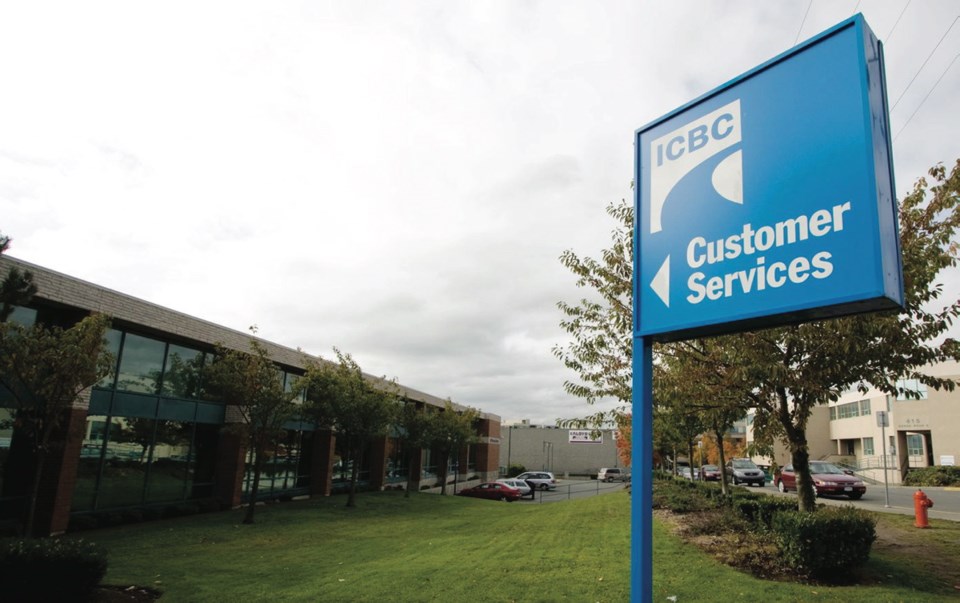David Eby, the minister responsible for the Insurance Corp. of B.C., has hinted he may consider some form of no-fault insurance if attempts to the rebuild the corporation’s finances are overturned. So far, the Trial Lawyers Association has convinced a B.C. Supreme Court judge to negate one of those measures.
Eby wanted to limit the number of expert witnesses to three on each side during legal proceedings. The court ruled this unconstitutional, on the ground that it is up to presiding judges, not politicians, to determine how much evidence is presented.
Eby’s two remaining changes, a $5,500 cap on minor injury payouts, and a civil resolution tribunal to hear disputes under $50,000, are also being challenged. In the event these too are struck down, the cost to ICBC is estimated in the billion-dollar range.
While the minister has not said explicitly that he would look at no-fault, Eby has made clear he will not permit the kind of rate increases required to make good losses of this scale.
We’ve been down this road before. In the early and mid-1990s, ICBC was haemorrhaging money. The company responded by raising premiums through the roof.
In response, Glen Clark’s government considered no-fault as a way of halting the slide.
Under this system, lawsuits are generally not required. Payouts to the innocent party are determined on a sliding scale, depending on the degree of injury or loss of income. Saskatchewan, Manitoba and Ontario have already adopted partial no-fault plans. Quebec employs the full scheme. While the average ICBC premium is $1,900, the highest in the country, drivers in Saskatchewan pay only $1,062, and $1,100 in Manitoba.
In the end, Clark’s government abandoned no-fault. Some observers believed intense opposition by trial lawyers was to blame.
In truth, the main reason was public opposition to the idea. By large majorities, British Columbians felt that someone who causes a crash should be punished. They associated the term “no-fault” with too easy a let-off.
In fact, there is no “let-off.” If an award of $1 million is made to settle a traffic injury claim, the driver at fault doesn’t have to come up with the money. As the motorist’s insurer, ICBC picks up the bill, which is to say, the driving public picks up the bill.
What does happen is that guilty drivers get their premiums hiked. In this sense the term “no-fault” is misleading. Motorists who cause a crash do pay for it.
But here a quandary arises. According to Transport Canada, traffic crash rates have been declining for years.
Nationwide, there were 259,000 traffic injuries in 1985. By 2017, that number had fallen to 155,000, a drop of 40% despite more cars on the road.
Part of this is due to improved safety systems in modern vehicles. Part is due to public campaigns against drunk driving. So why is ICBC facing massive losses?
The reason is that the company faces crash claims far in excess of anything Transport Canada’s numbers would suggest. In 2017 alone, ICBC reported 95,000 injuries. But Transport Canada’s figures indicate there should have been far fewer — somewhere around 20,000.
What’s happening is that motorists are coming forward to claim injuries in crashes that were not serious enough to be reported at the time, and in which the police were not involved.
This is, to put it mildly, somewhat suspicious. The only obvious explanation is that motorists are taking advantage of minor incidents to claim injuries that may very well be exaggerated or outright bogus.
Eby’s attempts to limit payouts in such cases is, in part, an attempt to deal with drivers who are gaming the system.
And here, our litigation-based approach inflicts further costs. In 2018 ICBC paid roughly $700 million to law firms representing crash victims.
These bills did not include cash settlements going to the injured parties. They were purely legal costs.
In addition, the company laid out a further $155 million to lawyers representing the guilty party. In effect, ICBC pays for both sides of a lawsuit. Or put another way, we do.
This is pure madness.
The question is what can be done. If Eby loses the remaining court cases, some form of no-fault seems inevitable. But win or lose, this appears the only workable option. For even with a win, B.C. will still have the highest premiums in the country.
The challenge facing the minister is to reassure a skeptical public that if a no-fault scheme is introduced, justice will still be done. Motorists who cause injuries will pay a price.
What will not happen is that crash-free customers will continue paying for legal bills in the $855 million range, bills from which they derive no personal benefit.



